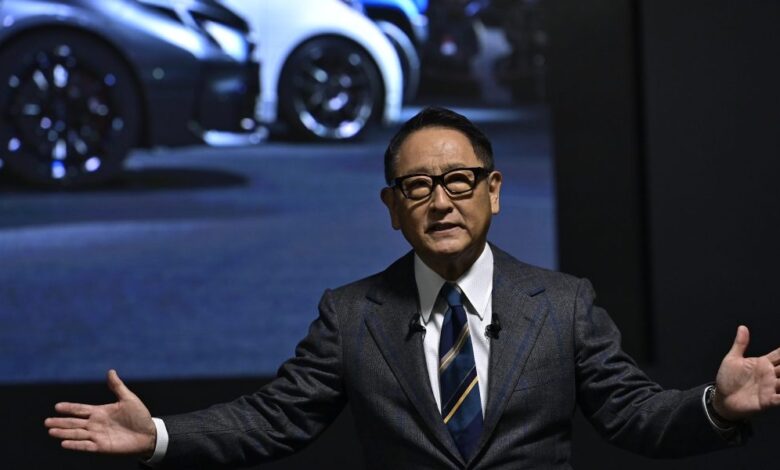Japanese Automakers Excel in Hybrid Strategy as EV Transition Gains Momentum

Timing is proving to be a crucial factor in the automotive industry’s shift towards electric vehicles (EVs), and Japanese automakers Toyota, Honda, and Mazda seem to have played their cards right. Despite appearing late to the EV game, these companies have strategically focused on hybrid vehicles as a practical and successful transition.
Rather than hastily embracing EVs, the trio has witnessed soaring sales of hybrids, contributing to record or near-record profits. This financial strength has positioned them favorably to now invest in EVs, with plans to make a significant impact in the EV market in the latter half of this decade.
The current automotive landscape sees a slowdown in the sales growth of EVs, prompting companies like Ford and GM to recalibrate their production plans. This deceleration is attributed to the fact that the initial wave of EV enthusiasts has largely made their purchases, while everyday consumers express concerns about higher prices, range anxiety, and poor resale value.
Amazon, in a recent call with investors, highlighted “notably lower” sales growth, aligning with the broader trend. However, Japanese automakers, having profited significantly from surging hybrid sales, are well-positioned to enter the EV market with financial strength.
Despite Tesla dismissing hybrids as a phase, Japanese automakers believe they still hold appeal, especially as consumers navigate concerns associated with EVs. Mazda’s CFO, Jeffrey Guyton, emphasized their strategy of following regulations while closely aligning with consumer preferences. With strong hybrid sales contributing to record profits, Mazda is optimistic about the future, expecting up to 40% of global sales to be EVs by 2030.
Similarly, Honda has experienced surging sales and profits due to its hybrid models, accounting for a quarter of total U.S. sales in 2023. While planning to introduce 30 new EV models globally by 2030, Honda aims for EVs to make up 40% of its sales in North America by that time.
Toyota, often criticized for a perceived delay in entering the EV market, has seen vindication as it continues to profit from hybrid vehicles. The company plans to make 3.5 million EVs annually by 2030 and aims to introduce new solid-state batteries for longer ranges and faster charge times by 2027.
Japanese automakers emphasize the importance of a measured transition, recognizing the continuing role of hybrid and traditional powertrains alongside EVs. As the industry evolves, the strategic approach of these automakers positions them as formidable players in the ongoing transition to electric vehicles.


